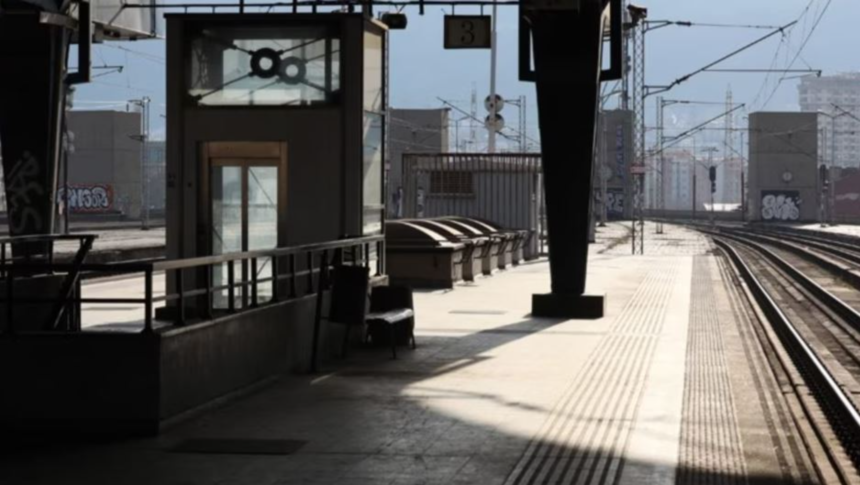North Macedonia has signed an agreement with the European Bank for Reconstruction and Development (EBRD) for an investment grant of 2.4 million euros, which will be used for the construction of a joint railway border crossing at the Tabanovce border point, connecting the country with Serbia.
The agreement was signed on Wednesday, March 5, by Deputy Prime Minister and Minister of Transport and Communications, Aleksandar Nikoloski, and the head of the EBRD office in Skopje, Fatih Turkmenoglu.
The project is part of a larger investment package of 7.6 million euros aimed at creating a joint border crossing point, with the goal of “improving infrastructure and facilitating the movement of goods and passengers between the two countries.”
As part of this project, the EBRD has previously approved a loan of 5 million euros and a grant of 250,000 euros.
“This way, we will improve communication between the two countries, as we will have a ‘one-stop-shop’ [joint border control] even for the railway section when traveling by train. I hope this will be a step toward restoring the regular railway passenger line between Skopje and Belgrade, for which efforts from both sides are definitely required. The total value of the project is 7.4 million euros for construction and 250,000 euros for consulting services and supervision,” said Minister Nikoloski.
The project includes the construction of a new joint building for border, customs, and inspection services of North Macedonia and Serbia, as well as the renovation of existing facilities in Tabanovce. Additionally, new road and municipal infrastructure will be built.
Construction is expected to begin this year after the contractor is selected and to be completed within two years. The railway line between North Macedonia and Serbia is part of Corridor 10, which is connected to the expansion of the Trans-European Transport Network (TEN-T) in the Western Balkans region.
The EU Ambassador to North Macedonia, Michalis Rokas, stated that with these investments, the EU is directly supporting efforts to improve the railway system of Corridor 10 and enhance regional connections, according to REL.
The head of the EBRD, Fatih Turkmenoglu, said that this project is proof “of the continued support of the European Bank for improving the country’s infrastructure,” describing it as “a key investment for promoting regional growth and strengthening railway connections in the Western Balkans.”







